- Handling Your Child's Dental Emergency
- Tooth Decay in Baby Teeth
- Your Child's Teeth
- Healthy Smiles for Mother and Baby
- Baby Teeth: When They Come In, When They Fall Out
- Your Child's First Visit to the Dentist
- Why Baby Teeth Are Important
- Your Child's Teeth: Ages Six–12
- Your Child's Teeth: From Birth to Age Six
- Your Child's First Dental Visit
A Bright Start for Healthy Teeth: Caring for Your Baby's Smile
Your child's primary teeth, often known as baby teeth, are crucial in their early development. These teeth help children chew properly, speak clearly, and give their face its natural shape. Even though permanent ones will eventually replace baby teeth, caring for them from the beginning is essential for establishing long-term oral health.
Understanding Baby Teeth Development
When your baby is born, their future teeth are already forming beneath the gums. These 20 baby teeth begin to emerge, or "erupt," usually at around six months of age. The front teeth on the top and bottom typically appear first. By age three, most children will have their complete set of 20 baby teeth.
As your child grows, their jaw expands to make room for adult teeth. By age six or seven, baby teeth begin to fall out, and permanent teeth start to take their place.
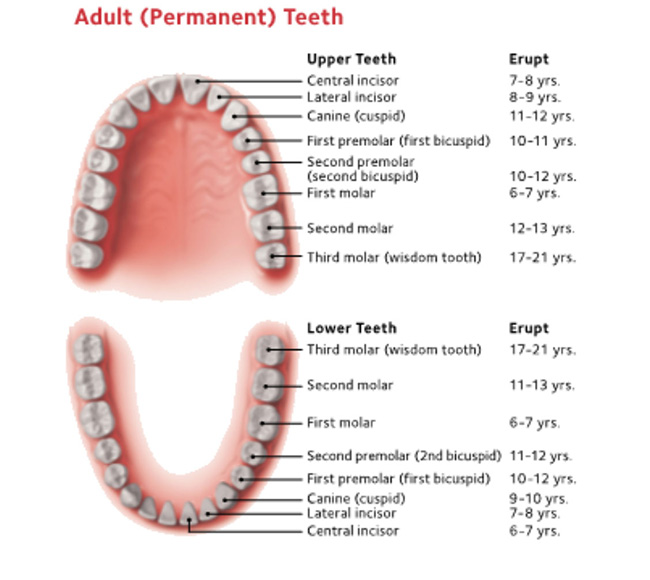
The Role of Baby Teeth in Permanent Tooth Development
Baby teeth serve as placeholders for adult teeth, ensuring they come in correctly. Suppose a baby's tooth falls out too early — whether due to decay or injury — it can lead to complications. Neighboring teeth might shift into the space, leaving little room for the adult tooth to emerge correctly. This could cause the adult tooth to grow crooked or misaligned.
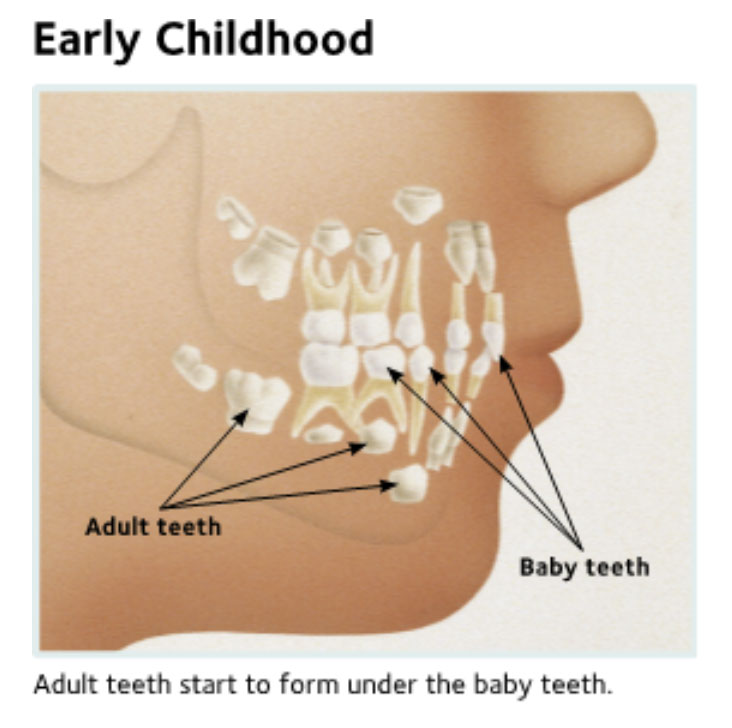
To prevent this, dentists often recommend space maintainers for children who lose baby teeth prematurely. These devices open the gap until the permanent tooth is ready to emerge.
Preventing Tooth Decay in Baby Teeth
Tooth decay in baby teeth can have far-reaching consequences. In addition to being painful, decay may affect the alignment and development of adult teeth. Early decay can also lead to eating and speaking difficulties for your child.
Decay typically occurs when baby teeth are exposed to sugary liquids for long periods. Beverages like juice, formula, and even milk can contribute to this issue. Sugars in these liquids react with bacteria in the mouth to form acids that attack tooth enamel, causing cavities.
Tips for Protecting Baby Teeth from Decay
Here are a few ways to prevent tooth decay in your child's teeth:
- Avoid bedtime bottles: Do not put your child to bed with a bottle containing anything other than water. Sugary liquids can pool around the teeth and lead to decay.
- Limit juice intake: The American Academy of Pediatrics recommends not giving juice to babies under one year old, even if it's 100% juice. Instead, offer water or milk in moderation.
- Use a clean pacifier: If your baby uses a pacifier, avoid dipping it in anything sweet like honey or sugar. Also, do not clean the pacifier by placing it in your mouth, as this can transfer cavity-causing bacteria to your child.
- Monitor sugary liquids: Refrain from letting your child sip on sugary drinks throughout the day. Reserve sweet beverages for mealtimes and offer water at other times.
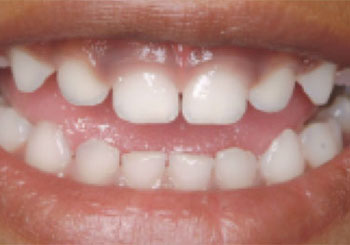
Healthy baby teeth
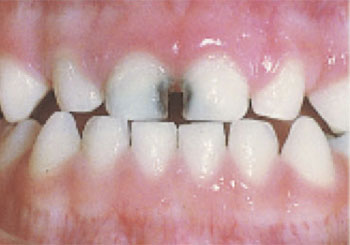
Moderate decay
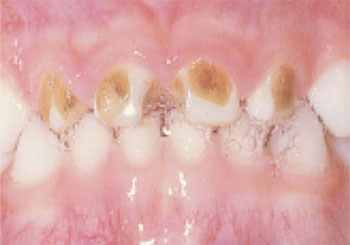
Moderate to severe decay
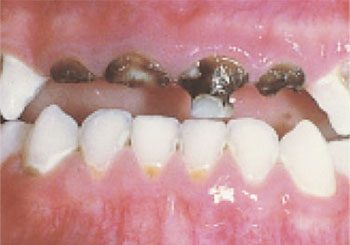
Severe decay
Cleaning and Caring for Your Child's Teeth
Good oral hygiene starts even before the first tooth appears. After each feeding, gently wipe your baby's gums with a soft, damp cloth or gauze pad. This helps remove any food particles or plaque that could impact erupting teeth.
Once your baby's first tooth comes in, around the time they’re six months of age, begin brushing twice daily using a soft-bristled, child-sized toothbrush. Choose a fluoride toothpaste, which helps protect teeth by strengthening enamel.
To effectively clean your baby's mouth, sit with their head in your lap, allowing easy access to their teeth and gums. Brush gently twice a day — once in the morning and once before bedtime.
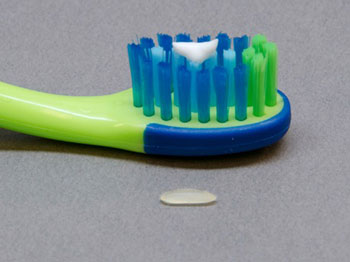
For children under three years old.
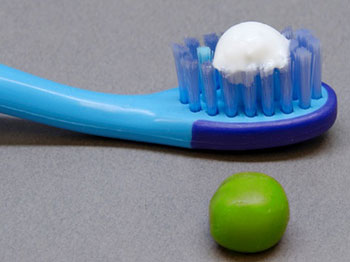
For children three to six years old.
Brushing and Flossing Guidelines
The American Dental Association (ADA) advises that parents continue brushing their children's teeth until they reach the age of six. This ensures that the teeth are adequately cleaned, as young children may lack the skill to brush thoroughly. Once your child is ready to brush independently, supervise them to ensure they are doing well and remind them to spit out the toothpaste rather than swallowing it.
When your child's teeth begin touching, introduce flossing to clean between them. Your dentist or hygienist can demonstrate the proper technique for flossing young teeth.
When choosing dental products for your child, look for the ADA Seal of Acceptance. This seal guarantees that the product has been tested for safety and effectiveness.
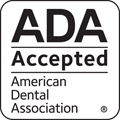
Planning Your Child's First Dental Visit
The ADA recommends scheduling your child's first dental appointment after their first tooth erupts or by their first birthday, whichever comes first. Consider this a "well-baby checkup" for your child's teeth. Early visits help familiarize your child with the dentist and allow the dentist to check for potential issues.
Regular dental checkups from a young age set the foundation for lifelong oral health. With proper care and attention, your child can grow up with a healthy, confident smile that lasts well into adulthood.
Visit Our Office
Office Hours
- MON8:30 am - 5:00 pm
- TUE8:30 am - 5:00 pm
- WEDClosed
- THUClosed
- FRI8:30 am - 5:00 pm
- SAT9:00 am - 2:00 pm
- SUNClosed